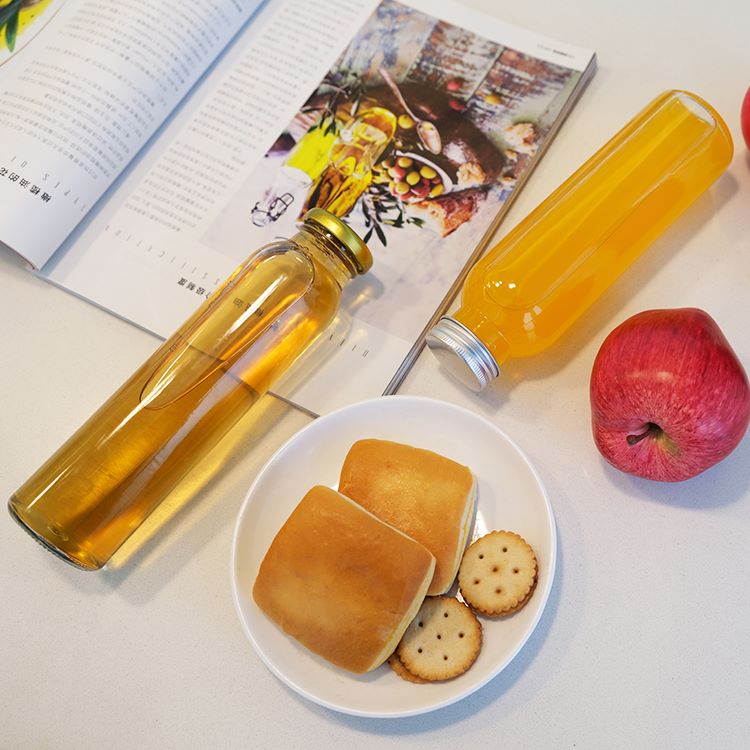5 Advantages of Choosing Recycled Glass Bottles and Jars
5 Advantages of Choosing Recycled Glass Bottles and Jars

With a growing awareness around sustainability, both consumers and businesses are seeking greener packaging solutions. Among the top choices are jars and bottles made from recycled glass, which provide a robust and eco-friendly substitute for disposable plastics. These containers offer a safe and sustainable option for storing food, beverages, and everyday household goods.
But why should you opt for recycled glass, even if you’re not running a business? In this piece, We’ll outline five major reasons to incorporate recycled glass bottles and various sizes of jars into your daily routine.
Understanding Recycled Glass
Recycled glass is created by processing discarded glass items — such as bottles, jars, and windows — and turning them into new products. This involves collecting used glass, thoroughly cleaning it, breaking it down into smaller fragments, and then melting it to manufacture fresh glass goods.
This practice not only diverts significant amounts of waste from landfills but also supports a circular economy. Unlike other packaging materials such as plastic or metal, glass can be recycled countless times without losing its quality or purity.
Top Reasons to Use Recycled Glass Jars and Bottles
1. Helps Cut Down on Waste
According to ResearchGate, the UK produces over 3 million tonnes of glass waste each year, yet just 21% is recycled. As a result, large amounts of glass end up in landfill sites. Expanding recycling initiatives is crucial to reduce this environmental burden.
Unlike plastic, glass doesn’t break down over time, but it retains its strength and integrity after being recycled. This makes recycled glass ideal for use as food storage containers, cosmetic jars (including small lidded jars), wedding favors, and more — offering a safer and more sustainable choice than plastic alternatives.
2. Helps Preserve Natural Resources
Producing glass involves extracting raw materials such as sand, limestone, and soda ash, all of which place considerable strain on the environment. By recycling glass containers — like bottles and jars — into new products, we are able to lessen the demand for these finite resources. This practice not only safeguards natural materials but also minimizes the environmental harm associated with mining and resource extraction.
3. Cuts Down on Greenhouse Gas Emissions
WRAP UK reports that recycling one tonne of glass prevents 246 kg (542 pounds) of carbon dioxide from being emitted into the air. The reason is that manufacturing new glass requires extremely high temperatures, which leads to significant CO? emissions. Choosing recycled glass jars for packaging — whether for food, beauty products, or other uses — means less energy is needed during production, which in turn leads to fewer greenhouse gases being released. This highlights the importance for both businesses and consumers to opt for sustainable alternatives like glass bottles and jars with lids.
4. Reduces Overall Energy Use
As mentioned before, creating brand-new glass products demands a lot of heat energy, due in part to the extraction and processing of raw materials. Recycling glass, on the other hand, uses much less energy. Lower energy requirements reduce dependence on fossil fuels and contribute to efforts to combat climate change. If households and businesses made a conscious effort to select bottles and jars crafted from recycled glass, the resulting energy savings would be substantial — making these options both environmentally responsible and economical.
5. It Supports a Circular Economic Model
A circular economy aims to keep resources in use for as long as possible by encouraging the reuse, recycling, and transformation of materials, rather than disposing of them and constantly manufacturing new items. Recycled glass jars and bottles illustrate this principle perfectly. Rather than ending up in landfills after a single use, these glass containers can be gathered, reprocessed, and remade into new jars, bottles, or other products time and again. This ongoing cycle helps cut down on waste, preserves valuable resources, and lessens the impact on the environment.